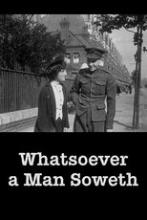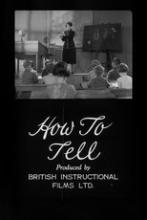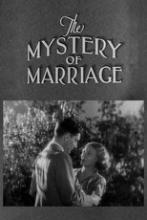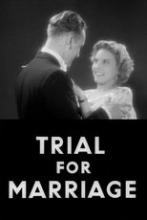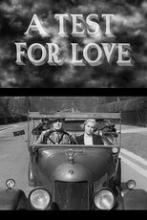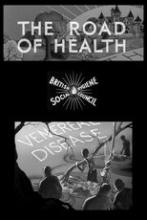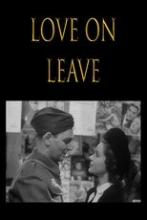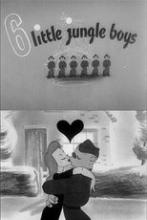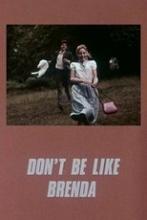
The Joy of Sex Education
A survey of sex education through the ages. Many of the early films highlight Britain's horror at the very thought of sex and sexuality. Euphemisms abound and, if you can get away with making your point with the aid of a few birds or rabbits, why not? Even some mildly amorous pollen gets in on the act as a stand-in for something otherwise far too unpleasant to show. At least it saved the teachers' blushes. Despite the often unintentional humour, the films provide a vivid snapshot of the nation's concerns and anxieties across the decades. Not only did they teach us to keep our trousers firmly zipped, but also managed to underline the establishment's attitude towards women. Loose of morals and self-control, women are invariably portrayed as the spreaders of disease and responsible for just about every 'misfortune' that comes their way.
Whatsoever a Man Soweth (1917)
06 March, 1917
...made to educate and warn Canadian troops about the dangers of catching venereal disease. As the biblical title suggests, it is essentially a straight sermon, a form that its target audience would have found familiar both from church at home and during their military service. The protagonist is warned, is tempted to ignore the advice, is rescued in the nick of time by a well-wisher and is finally shown the devastating consequences in another that he has so narrowly avoided. (BFI Screenonline)
Any Evening After Work (1930)
31 December, 1930
A man contracts a sexually transmitted disease, but is reluctant to seek medical help - until a no-nonsense lecture about the risks he is taking forces him to change his mind.
How to Tell (1931)
08 February, 1931
How To Tell was produced to advise parents on how to equip their children with the truth about reproduction, without the worry of putting the family off their dinner. The title cards encourage parents to explain the process openly and scientifically by reinforcing the school's biology lessons with the assistance of plants and pet rabbits.
The Mystery of Marriage (1931)
17 September, 1931
The courtship rituals of animals and plants are compared to those of contemporary society, with educational and frequently humorous results.
Trial for Marriage (1936)
08 February, 1936
A man feels so much guilt over being infected by venereal disease that he conjures up a personal trial over his own behaviour.
A Test for Love (1937)
05 September, 1937
In this dramatized warning to young women of the risks of venereal disease, Betty, a shop girl, pays a severe price for just one 'slip'.
The Road of Health (1938)
13 November, 1938
The lecturer shows a microcinematographic sequence of spirochaetes and drawings of the gonoccus (the bacteria responsible for syphilis and gonorrhea). He then turns to an easel and begins to draw 'the road of health'; the cartoon takes this up in magic drawing, in a style that is highly reminiscent of the 'Giro the Germ' series made for the Health and Cleanliness Council a few years before.
Love on Leave (1940)
13 November, 1940
George and Katherine plan to marry but war breaks out. When he returns on two weeks leave, but has his marriage proposal put down by Katherine, George enters a relationship with another woman.
6 Little Jungle Boys (1945)
15 November, 1945
A short animated War Office commissioned health education film, showing the fate of each of the 6 jungle soldiers.
The People at No. 19 (1949)
15 November, 1949
Reported cases of sexually transmitted disease took a sharp rise during and after World War II, but as this film testifies, sexual license amongst soldiers on the frontline wasn't the sole cause. Back on the home front, for many women, like Joan from No. 19, loneliness or newfound independence acted as an incentive to extramarital promiscuity.
Growing Girls (1949)
15 November, 1949
After several farmyard analogies featuring chicks and calves, the well-spoken narrator and director of the film, Winifred Holmes, considers the subject of girls and how they reach adulthood and readiness for the 'important job of motherhood.
Learning to Live (1964)
08 November, 1964
A basic sex education film designed for young engaged couples.
Her Name Was Ellie, His Name Was Lyle (1967)
25 September, 1967
In New York City, a relationship is threatened when a young man discovers he's caught syphilis from a tryst with a waitress named Ellie. This threatens his relationship with a new girl. Film critic Amy Taubin co-stars as the new girl who gets the bad news. The director is apparently the same man who edited Fritz Lang's The Testament of Dr. Mabuse.
Growing Up (1971)
02 January, 1971
Freedom of expression and sexual liberation might have defined the 1960s but by 1971 the British education system was far from ready for Dr Cole's explicit series A New Approach to Sex Education. Made as a teaching aid for use in schools an universities, the Growing Up was unprecedented in its depictions of erect penises, un-simulated masturbation and intercourse to describe the development of the human body and sexuality to students.
Don't Be Like Brenda (1973)
27 May, 1973
The brutally entitled Don't Be Like Brenda (1973) is an eight-minute lecture to young women, telling them not to be sexually promiscuous like the film's hapless heroine – although heaven knows, the promiscuity hinted at here is tragically modest. Poor Brenda goes all the way with a boy who does not marry her. The film is stunningly without any useful educational content on contraception and makes it entirely clear that the woman, not the man, is to blame. The film even makes her poor unwanted child suffer from a heart defect, so that no one wants to adopt the poor little thing – just to hammer the point home. (from: https://www.theguardian.com/film/filmblog/2009/feb/11/sex-education-films)
'Ave You Got a Male Assistant Please Miss? (1973)
27 May, 1973
A production of Oxford Polytechnic for sponsor the Family Planning Association, this is an unreservedly hairy promotion of the prophylactic in avoiding unwanted pregnancies. A wave of period details situate the film in both time and milieu. The culture of its audience, 1970s students, is evoked and displayed via a mattress on the floor, an ethnic rug, the kilim bedpsread, homebrew jars, denim clothes and by hair: long hair, facial hair - beards. The main actors are dead ringers for the infamous cover stars of Alex Comfort's The Joy of Sex, published the year before.

